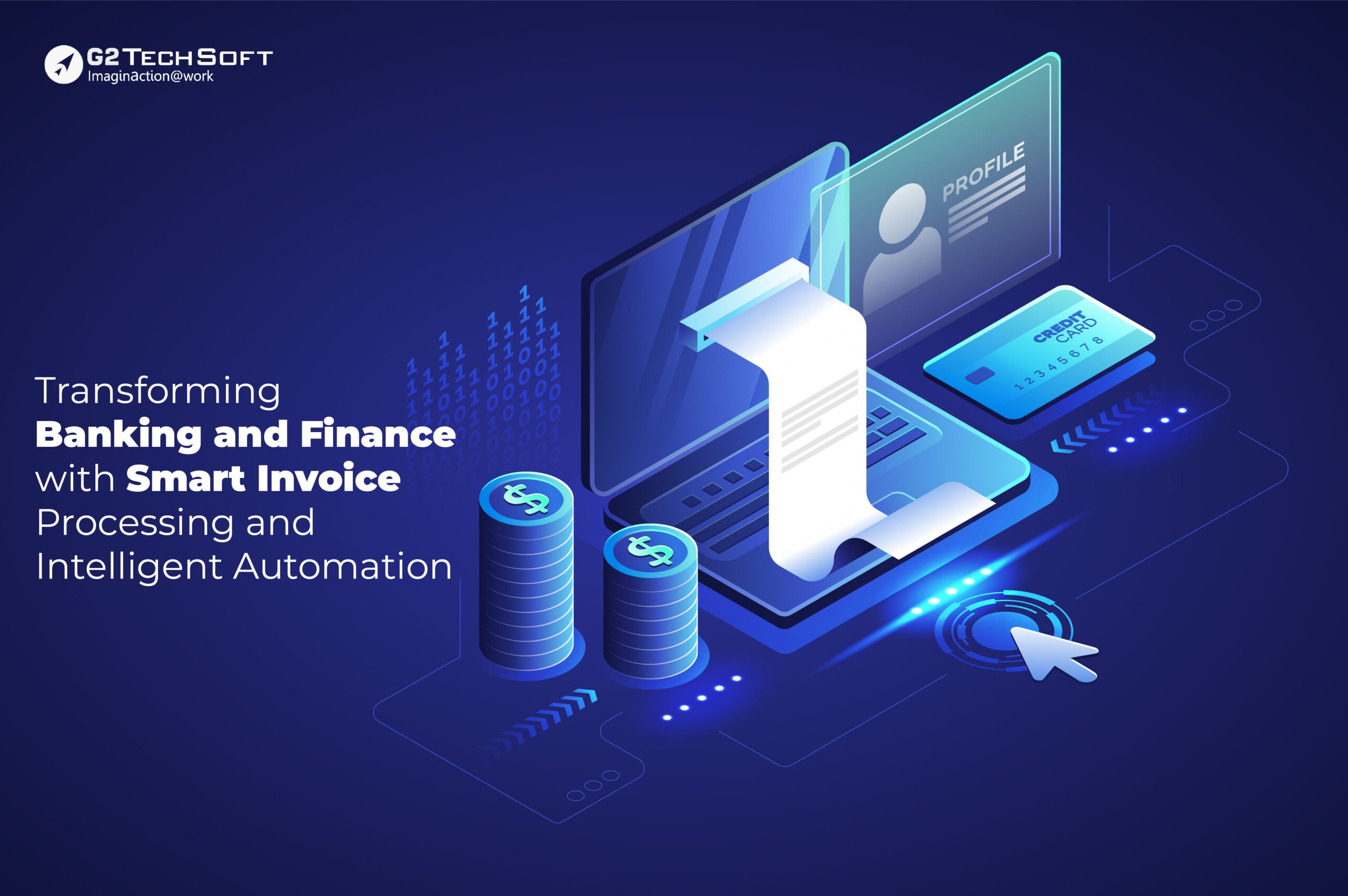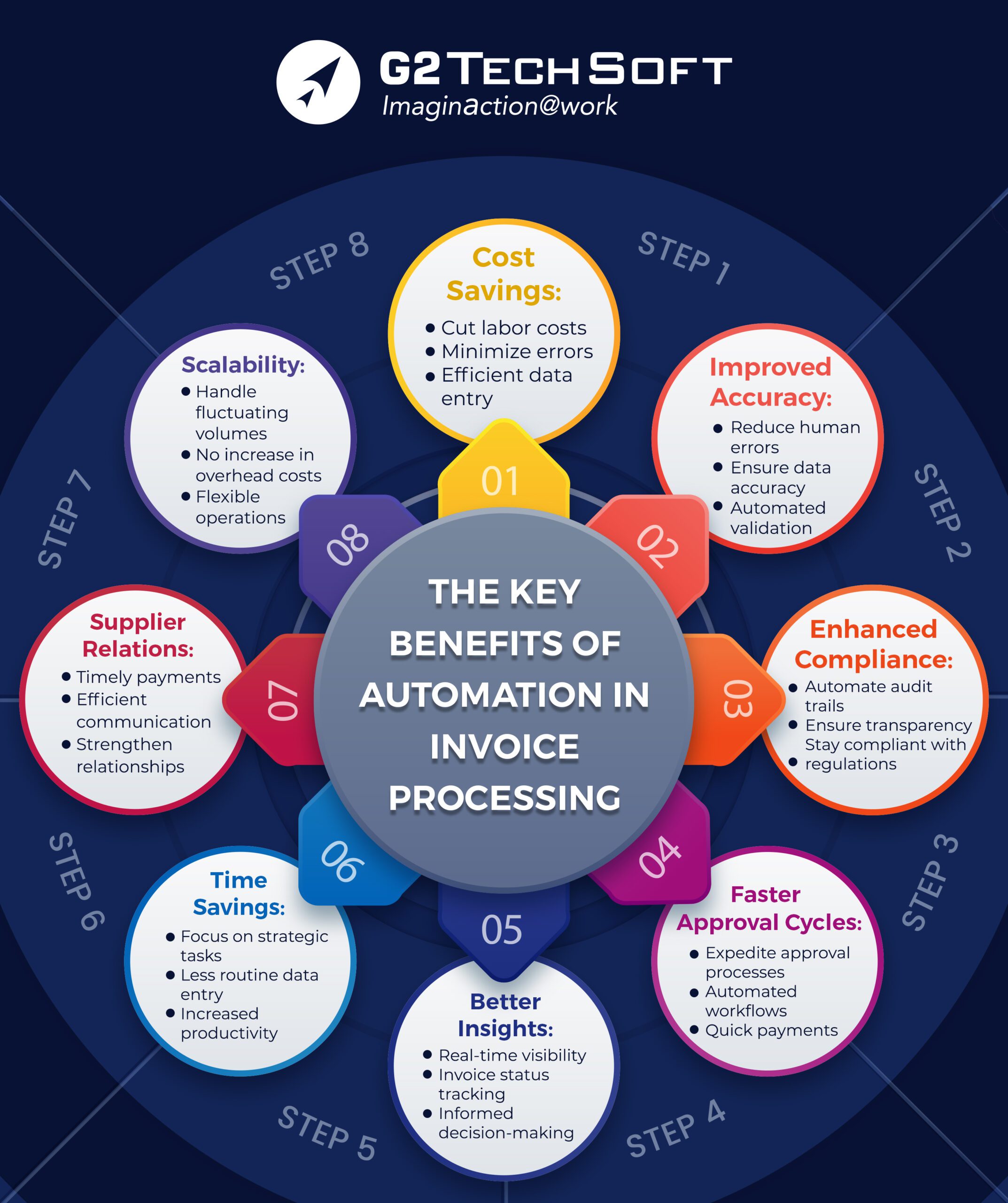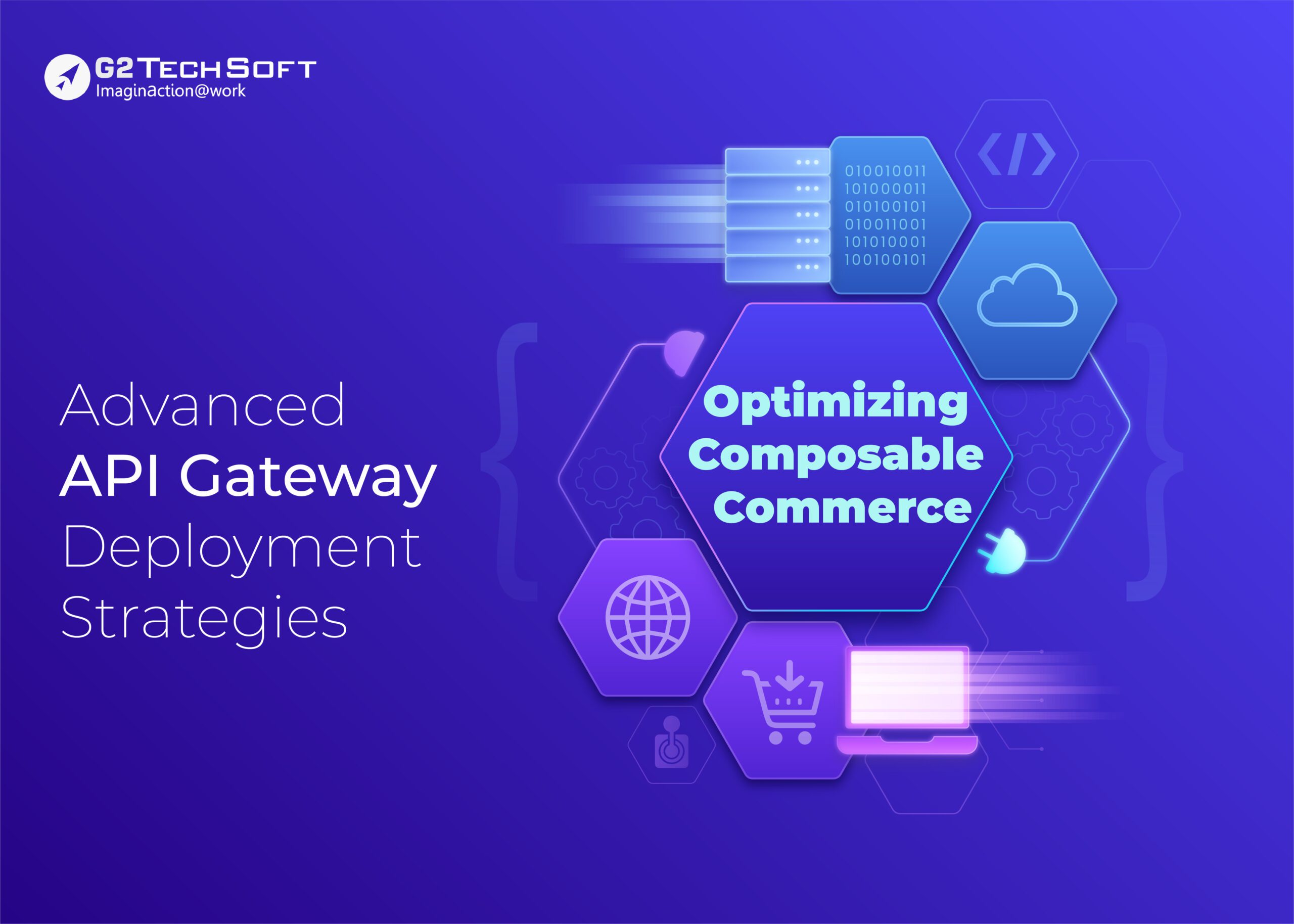
Transforming Banking And Finance With Smart Invoice Processing And Intelligent Automation
In the ever-evolving financial sector, banks and financial institutions continually seek innovative strategies to streamline operations and boost efficiency. One area undergoing a significant transformation is invoice processing, where automation plays a pivotal role.
Smart invoice processing, utilizing cutting-edge technologies like intelligent process automation incorporating machine learning (ML) and robotic process automation (RPA), will revolutionize traditional workflows.
By employing these advancements, the banking and finance sectors stand to revolutionize their invoice processes, attaining higher speeds, accuracy, and cost savings.
This blog explores how Intelligent Automation (IA) will be reshaping invoice processing automation, delving into the perks and ideal practices associated with implementing smart invoice processing solutions. Additionally, it provides real-world examples demonstrating how automation, particularly at G2 TechSoft, optimizes invoicing processes within the banking sector.
Invoice Processing Decoded: Streamlining Financial Operations In Banking
Invoice processing stands as a pivotal accounting function within the banking and financial sector, encompassing the reception, assessment, and settlement of invoices from vendors and suppliers. It is a linchpin in maintaining robust financial health and operational efficiency.
Efficient invoice processing will be significant for nurturing positive relationships with suppliers, ensuring prompt disbursements, and meticulously tracking financial dealings. By streamlining this process, institutions can foster trust and reliability in their business partnerships while optimizing resource allocation and financial oversight.
Essential Steps In Invoice Processing
Receiving Invoices:
Invoices shall arrive in various formats, including physical mail, email, or electronic data interchange (EDI). Prompt reception and cataloging of these invoices are crucial for initiating the processing workflow.
Invoice Validation And Matching:
The finance team meticulously verifies invoice particulars, such as item descriptions, quantities, and prices, against corresponding purchase orders and goods, received notes (GRNs). This validation will ensure accuracy and guard against discrepancies.
Invoice Approval:
Following validation, the invoice will undergo approval for payment. This stage may entail a single approval or traverse multiple hierarchical levels, contingent upon the organization’s established protocols.
Invoice Payment:
Upon approval, the invoice shall be slated for payment according to the agreed-upon terms. Payment execution can occur manually or via electronic means, aligning with the institution’s operational preferences.
Documentation And Record-Keeping:
Post-payment, the invoice will be meticulously recorded within the accounting system, and associated documentation will be archived for auditing and compliance purposes. This meticulous record-keeping will ensure transparency and accountability within financial operations while facilitating regulatory adherence.
Exploring The Advantages Of Invoice Processing Automation In Banking And Finance

Invoice processing automation delivers significant advantages to the banking and finance sectors, revolutionizing operations and bolstering organizational efficiency, accuracy, cost management, and cash flow visibility.
Increased Efficiency:
Automated invoice processing will alleviate the burden of labor-intensive tasks such as manual data entry, sorting, and filing. By liberating employees from these mundane responsibilities, automation empowers them to redirect their focus toward strategic initiatives, consequently enhancing overall productivity and operational agility.
Enhanced Data Accuracy:
With automated systems at the helm, the risk of human error associated with manual data entry is significantly mitigated. These systems excel in extracting and processing invoice data with unparalleled precision, thereby fortifying the accuracy of financial reporting and decision-making processes. Additionally, the reduction in errors contributes to diminished compliance risks, fostering a climate of regulatory adherence and integrity.
Cost Savings:
The adoption of automation translates into tangible cost savings for banking and financial institutions. By curtailing the need for extensive manual intervention, automation minimizes labor costs, storage expenses, and processing overheads. Moreover, expedited invoice processing facilitated by automation mitigates the likelihood of late payments, thereby averting potential penalties and fines and further bolstering cost-effectiveness.
Improved Cash Flow Management:
Automated invoice processing provides firms with enhanced visibility and control over accounts payable and receivable functions. Real-time data and analytics empower finance teams to make informed decisions regarding payment schedules, budget allocations, and financial forecasting, thereby optimizing cash flow management and fortifying financial resilience.
Enhanced Scalability And Flexibility:
Automation solutions are inherently agile and adaptable, seamlessly accommodating evolving business requirements and escalating invoice volumes. This inherent scalability ensures that organizations can easily navigate growth trajectories, while these systems’ flexibility facilitates seamless integration with existing financial processes, ensuring operational continuity and efficiency.
Accelerated Payment Processing:
Automated systems play a pivotal role in expediting the invoice approval and payment process, significantly reducing the likelihood of delayed payments and the consequent penalties. By automating these tasks, invoices can be swiftly reviewed, approved, and processed for payment, ensuring vendors receive timely remittances.
Strengthened Vendor Relationships:
Efficient and prompt invoice processing not only facilitates timely payments but also fosters stronger bonds with suppliers and vendors. Maintaining consistent and accurate payment schedules builds trust and credibility, potentially leading to more favorable terms and conditions for future transactions. Furthermore, streamlined communication through automated systems enhances transparency and collaboration in vendor relationships.
Advanced-Data Analysis:
Automated invoice processing solutions often integrate advanced analytics capabilities, offering invaluable insights into financial data. By leveraging these analytical tools, organizations can extract actionable intelligence from invoice data, enabling informed decision-making and strategic planning. From identifying cost-saving opportunities to optimizing cash flow management, robust data analytics empower finance teams to drive business growth and efficiency.
Ensured Compliance And Regulatory Adherence:
Incorporating automated systems into invoice processing workflows helps mitigate the risk of non-compliance with regulatory requirements and financial standards. These systems are designed to enforce adherence to relevant regulations, ensuring accuracy, consistency, and transparency in financial transactions. By automating compliance checks and audit trails, organizations can minimize the potential for errors and penalties, safeguarding their reputation and financial integrity.
By harnessing the transformative potential of invoice processing automation, banking and finance organizations should unlock unparalleled efficiencies, fortify data accuracy, optimize cost management, and gain unprecedented insights into their cash flow dynamics, thereby positioning themselves for sustained success and competitiveness in an ever-evolving landscape.
G2 TechSoft’s Approach To Intelligent Automation In Invoice Processing:
At G2 TecSoft, we have devised a robust approach to streamline invoice processing using intelligent automation (IA). This method expedites implementation and comprises several essential steps:
Check Your Mailbox For New Emails:
During the initial phase, the IA system is trained to access the designated mailbox to retrieve invoices. It scans incoming emails, analyzing attributes such as subject lines, sender details, and other category-specific criteria. This ensures that no invoice goes unnoticed, enhancing overall efficiency.
Identifying And Evaluating Attachments:
Upon detecting emails with attachments, the IA system verifies if they are in PDF format and within the specified size limit. Emails without attachments are disregarded, while those with multiple attachments are managed separately. This meticulous evaluation prevents errors and ensures smooth processing.
Keyword Analysis:
The IA system conducts a keyword analysis by comparing line items with predefined keywords in invoices and related documents. Unrecognized attachments are moved to a training folder, while recognized documents undergo keyword-based analysis within the PDF. This step enhances accuracy by ensuring only relevant information is extracted.
Field Extraction And Confidence Check:
Once relevant keywords are identified, the IA system extracts fields from the PDF documents and assesses the confidence score of the extraction process. This validation step ensures the accuracy and reliability of the extracted data, minimizing errors in subsequent processing.
Process Purchase Order (PO) Status And Extraction Errors:
The IA system verifies the status of purchase orders (POs) associated with the extracted data and organizes the data into appropriate folders. In cases of extraction errors, the system flags the email for further review and moves it to the Error folder. This proactive approach allows for prompt resolution of any issues, maintaining workflow efficiency.
These steps represent a systematic approach to managing incoming emails with attachments at G2 TecSoft. They ensure accurate categorization, extraction of pertinent information, and effective handling of errors or exceptions during the processing workflow.
Conclusion:
In a nutshell, Intelligent Automation (IA) is transforming invoice processing within the banking and finance sectors, presenting unparalleled efficiency, accuracy, and cost-saving opportunities.
Through the adoption of IA solutions, financial institutions stand to streamline their operations, bolster compliance measures, and elevate customer experiences in today’s dynamic business environment.
If you are in search of automated document processing solutions that meticulously categorize documents, extract relevant details, and proficiently handle any encountered errors or exceptions, don’t hesitate to reach out to G2 TechSoft. We are here to help you leverage the power of automation for optimized invoice processing and beyond.




